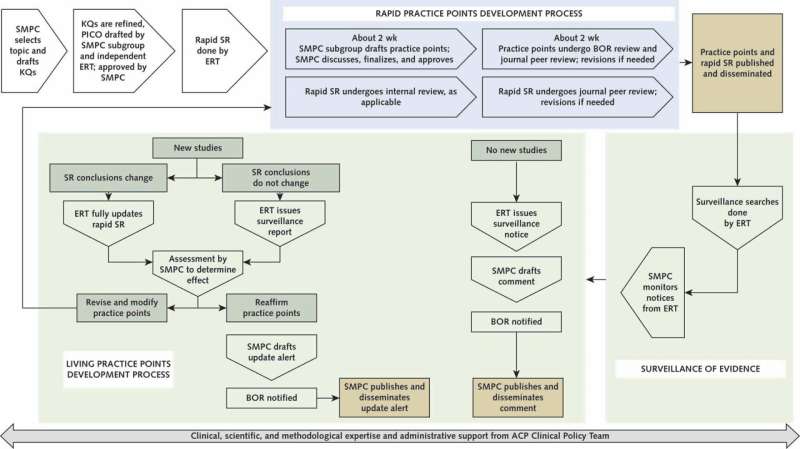Transparent methods for developing evidence-based living, rapid practice points

The American College of Physicians (ACP) today released a paper that details the methods that its Scientific Medical Policy Committee (SMPC) uses to develop ACP living, rapid practice points. “The Development of Living, Rapid Practice Points: Summary of Methods From the Scientific Medical Policy Committee of the American College of Physicians” was published in Annals of Internal Medicine.
ACP began developing living, rapid practice points in response to the urgent need to provide evidence-based answers to clinicians managing patients with COVID-19. This process involves evidence gathered through an independent living, rapid systematic review from which practice points are developed. In developing the practice points, ACP takes into account the balance of benefits and harms and also considers public and patient values and preferences, and other considerations including, but not limited to, cost, acceptability, and feasibility.
The paper explains in detail ACP’s methods for developing trustworthy rapid clinical advice, which includes a rapid systematic review, use of the GRADE (Grading of Recommendations Assessment, Development and Evaluation) method to rate the certainty of evidence for outcomes of interest, use of stringent policies on the disclosure of interests and management of conflicts, and incorporating a public (non-clinician) perspective.
“It’s important to transparently detail our methodology and process for developing the living, rapid practice points,” said George Abraham, MD, MPH, FACP, President, ACP. “We want to ensure that clinicians, their patients and others understand the rigorous standards that ACP is known for and were used to develop these timely and topical papers.”
Source: Read Full Article


